Out of Hand: Materializing the Postdigital at MAD
An exhibition exploring the latest digital design and manufacturing processes opens today at New York's Museum of Arts and Design.
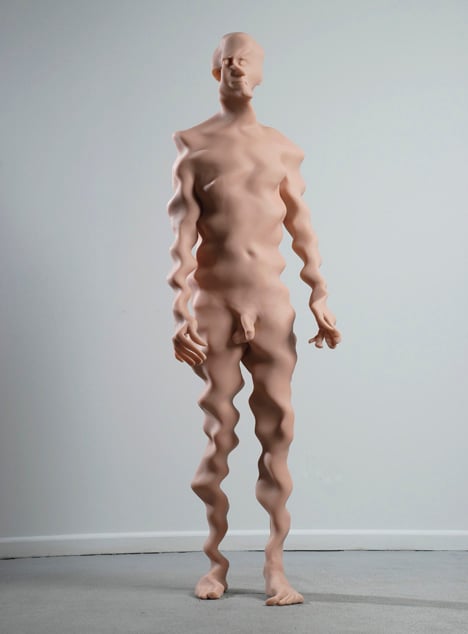
The exhibition at the Museum of Arts and Design (MAD) features more than 120 examples of sculpture, jewellery, fashion and furniture that demonstrate different uses for computer-assisted production methods.
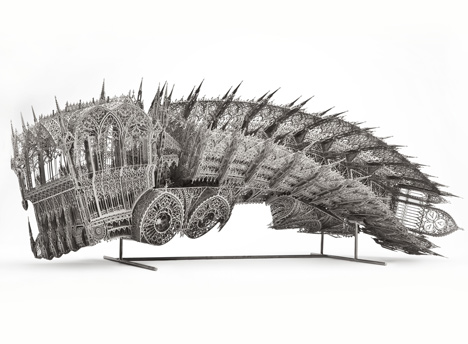
All of the pieces on show have been created in the past decade by artists, architects and designers including Zaha Hadid, Anish Kapoor, Joris Laarman, Daniel Libeskind and Marc Newson.
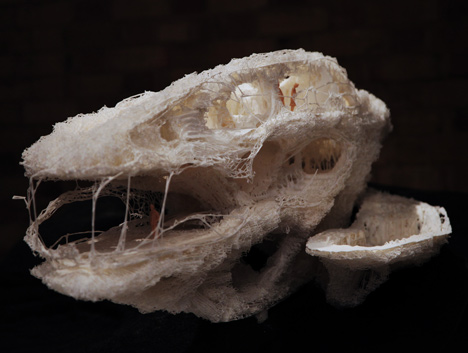
Some new works produced specially for the exhibition will also be presented, including a 4.5-metre-tall digitally-scanned mask of artist Richard Dupont.
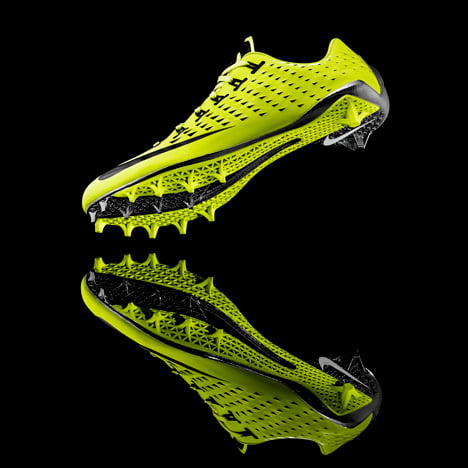
"From sculptural fantasy to functional beauty to conceptual idiosyncrasies, the works of art in Out of Hand, all created in the past decade, demonstrate an explosive, unprecedented scope of artistic expression," said curator Ronald T. Labaco.
"The cross-disciplinary nature of the work and the exploration of seemingly disparate themes and concepts allows for boundless creativity," he added. "The exhibition puts these pioneering works in dialogue, highlighting at once their vast diversity and the trends and ideas that connect them."
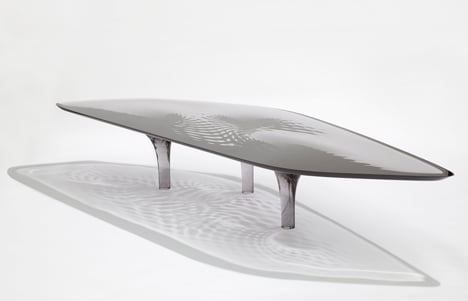
In keeping with the Museum of Arts and Design's curatorial policy there is a focus on experimental uses of materials and technologies in art and industry, rather than products designed for the mass market. "Many practitioners used multiple digital manufacturing techniques as part of their process," Labaco told Dezeen. "An interesting dialogue emerges between works that are created using different technologies."
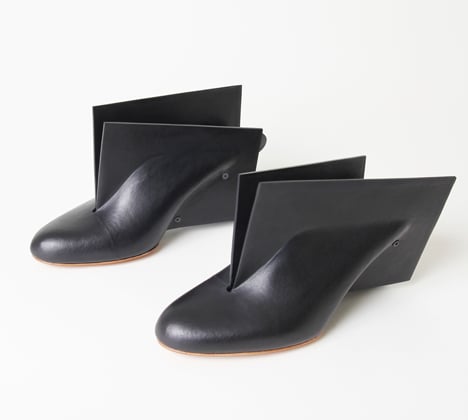
Labaco also explained that the show approaches the topic differently to other recent exhibitions about digital fabrication: "The exhibition is less about the innovative nature of the technologies, but rather how it has captured the imagination of makers. The show is object-based, to underscore that these are complete, fully-realized projects that exist in the material world."
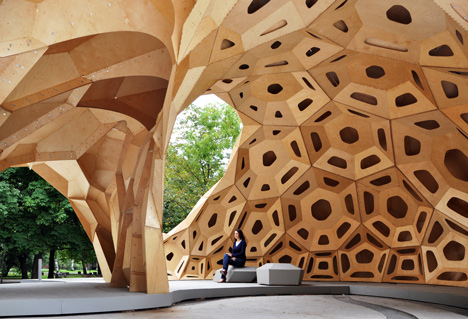
Several of the exhibits have previously featured on Dezeen, including a 3D-printed dress for Dita Von Teese, a boot for American football players with 3D-printed studs, and a shoe by Dutch designer Marloes ten Bhömer that can be printed for a perfect fit.
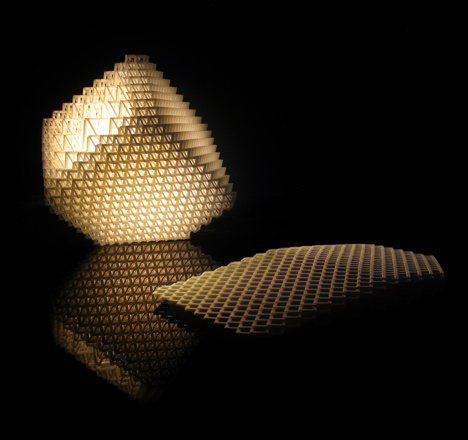
Volume.MGX Lamp, 2009, by Dror Benshetrit. Image is by .MGX Materialise
We've also published stories about a polygonal plywood pavilion at a German university, a proposal for a web-like printed house, and a marble armchair by Joris Laarman based on the way bones grow, all of which feature in the show.
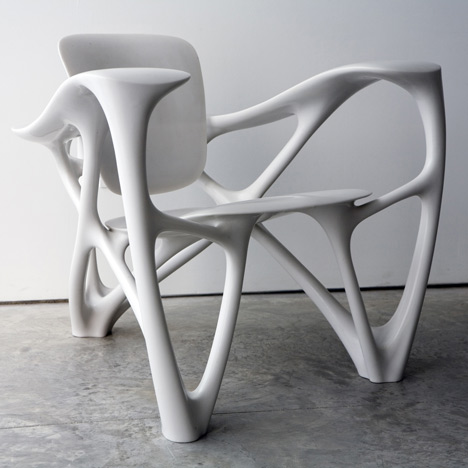
Visitors to the exhibition will be invited to try out technologies including computer-aided modelling software and 3D printers, while designers-in-residence will be on hand to demonstrate some of the processes.
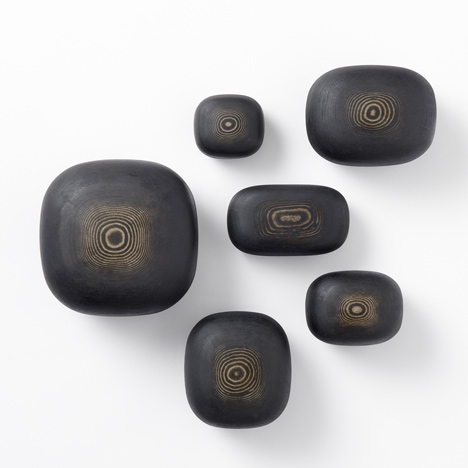
The Museum of Arts and Design announced last month that it has appointed Glenn Adamson as its new director. Adamson had been head of research at the V&A, where he co-curated the 2011 exhibition Postmodernism: Style and Subversion 1970 to 1990.
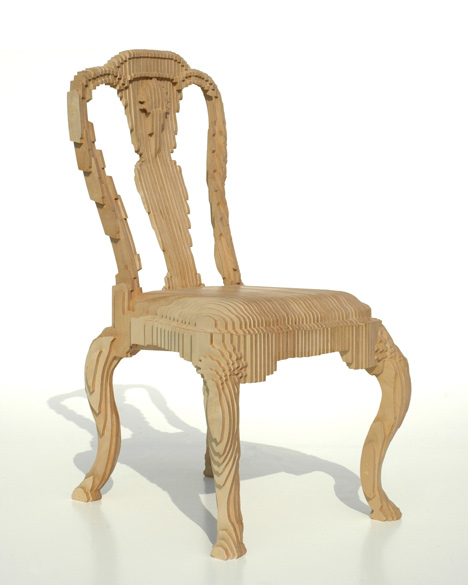
Here are some more details about the exhibition from the Museum of Arts and Design:
Out of Hand: Materializing the Postdigital
Exploring the latest trends in digital fabrication, Out of Hand: Materializing the Postdigital at the Museum of Arts and Design is the first in-depth survey dedicated to exploring the impact of computer-assisted methods of production on contemporary art, architecture, and design. Opening in October, this landmark exhibition brings together more than 120 works of sculpture, jewelry, fashion, and furniture by 85 artists, architects, and designers from 20 countries to examine how new technologies are pushing the boundaries of artistic expression and creation. The cutting-edge works highlighted in the exhibition demonstrate the reciprocal relationship between art and technological innovation as well as materials and new techniques—an area of exploration that has long been at the core of MAD's mission and curatorial program.
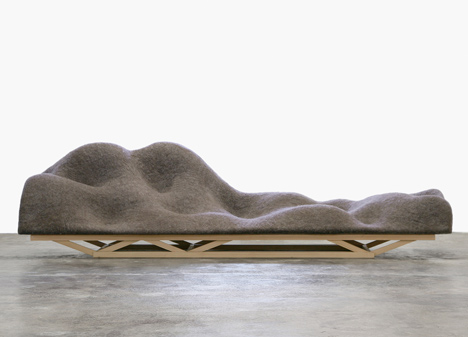
To mark the launch of MAD's new holiday hours, visitors are invited for a sneak peek of the exhibition on Columbus Day, October 14. The completed exhibition will be on view October 16, 2013, through July 6, 2014.
Organized by Ronald T. Labaco, MAD's Marcia Docter Curator, the exhibition features new and recent work from 2005 to the present, including commissions created especially for Out of Hand and objects never presented before in the U.S. by such artists, architects, and designers as Barry X Ball, Bespoke Innovations, Wim Delvoye, Richard Dupont, Zaha Hadid, Anish Kapoor, Joris Laarman, Daniel Libeskind, Maya Lin, Greg Lynn, Lucas Maassen, Jürgen Mayer- Hermann, Achim Menges, Marc Newson, Nike, Alan McCollum, Roxy Paine, Frank Stella, Hiroshi Sugimoto, and Unfold, among many others. Two large-scale sculptures—a fifteen-foot- high digitally scanned mask of artist Richard Dupont's face, and a towering abstraction of wrestling figures created through digital milling techniques by Michael Rees—will activate the space outside the Museum on Columbus Circle and serve as an introduction to the exhibition.
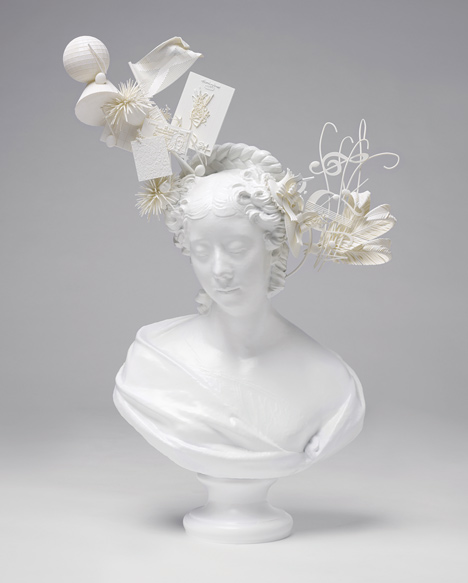
"The compelling works in Out of Hand expand audience understanding of the ways artists and designers from around the world are utilizing these new technologies to extend their artistic practice, revealing how these innovations are also transforming practices in manufacturing, healthcare, and other fields not readily associated with the contemporary art world," said David McFadden, MAD's William and Mildred Lasdon Chief Curator. "By examining these trends through the lens of artistic expression, MAD is opening up a dialogue on the significance of digital technologies to our larger culture and global society."
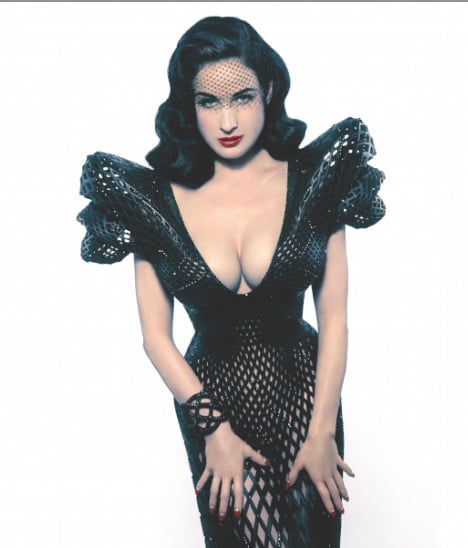
Building on MAD's practice of making the artistic process accessible in the gallery spaces, audience participation plays a central role in the exhibition. The Museum's second floor will be equipped with 3D printers, modeling software, and computer monitors, allowing visitors to experiment with the technologies explored in the show. Designers-in-residence working in the gallery will demonstrate various digital techniques and fabrication tools used to create objects like those in the exhibition, and a range of special workshops, public and educational programs that provide visitors with hands-on opportunities to deepen their engagement with 3D software and hardware throughout the exhibition's run. Also integrated into the installation are video clips that explain individual artistic practices and the divergent approaches toward incorporating digital fabrication in the creative process. Additionally, a number of the featured works include interactive components.
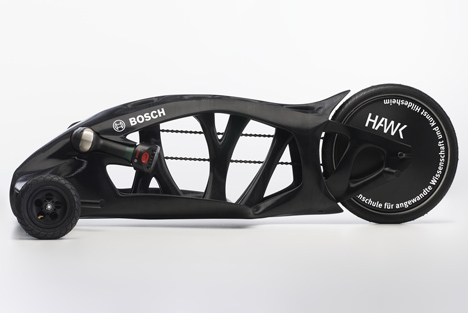
Rapid Racer, 2011, by Andreas Schulz , Barbara Kotte, Johannes Zäuner, Rebecca Wilting, and Nicolas Eggert. Image is by Johannes Roloff
The exhibition is conceptually organized around six themes, which provide a framework for navigating the diverse range of artwork on view and reflect aesthetic trends and artistic approaches:
- In Modeling Nature biological and ecological phenomena serve as a point of departure for artistic creativity;
- New Geometries explores how mathematical formulae are applied to create intricate three-dimensional patterns and geometric forms large and small;
- Rebooting Revivals reveals how creators use computer-assisted production to reference or appropriate notable historical art works and decorative styles;
- Digital manipulation is also used to reconceptualize human figuration and the body in Remixing the Figure;
- Works in Pattern as Structure incorporate movement, sound, light, and other sensory elements to create immersive art forms that activate the gallery space;
- Processuality documents how the act of making plays a vital role in the creation and presentation of works that reveal the limitless possibilities of these emerging technologies.
"From sculptural fantasy to functional beauty to conceptual idiosyncrasies, the works of art in Out of Hand, all created in the past decade, demonstrate an explosive, unprecedented scope of artistic expression," said Curator Ronald T. Labaco. "The cross-disciplinary nature of the work and the exploration of seemingly disparate themes and concepts allows for boundless creativity. The exhibition puts these pioneering works in dialogue, highlighting at once their vast diversity and the trends and ideas that connect them."
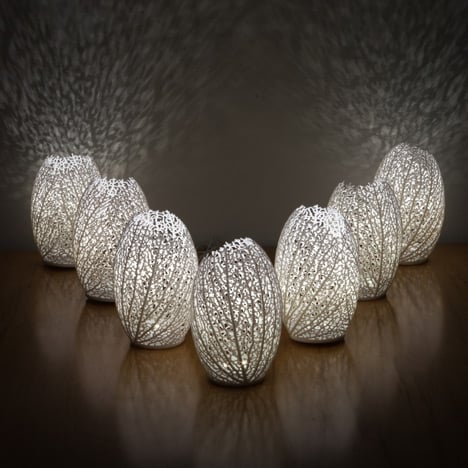
To provide audiences with the full sweep of innovation in this rapidly growing field, the exhibition includes objects created through purely digital fabrication techniques alongside works that combine traditional handcrafted processes with these new methods.